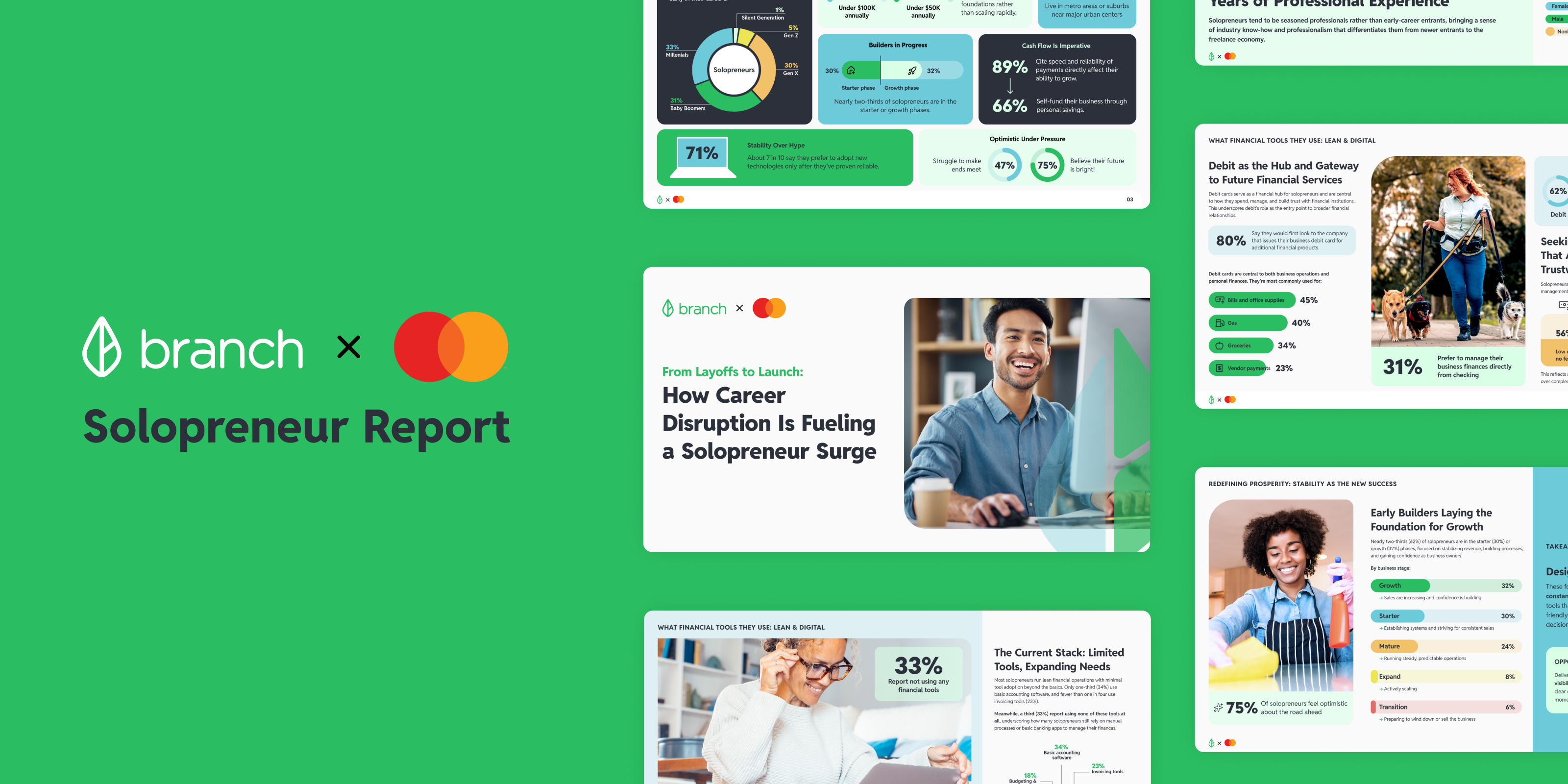
What To Know About Tip Payout Compliance & Regulations
⏰ Est reading time: 7 mins
💡 What you’ll learn:
- The basics of tip payout compliance and regulations.
- Best practices for choosing a tip payout method that keeps you compliant with these regulations while also streamlining operations.
- Why choosing a comprehensive tip payout + pay card solution for employees offers a better way to provide fast, digital payments to your staff.
What to Know About Pay Cards for Employees and Tipping Regulations
When it comes to finding a fast, digital way to pay employees their tips, pay cards are a great option. However, to make sure you’re finding the best pay card solution for your business and your staff, it pays to do your due diligence—not only to find a comprehensive, cost-effective solution, but to understand common tipping regulations and how those may affect your choice of pay cards for employees, too.
Tip payouts come with their fair share of complexities, including complying with state and federal laws. Because the practice of tipping involves this added layer of oversight, it’s a good idea to brush up on some tip payout basics and a summary of current tip payout regulations so you can find the best pay card for employees and tip payout method for you.
First, let’s get down to the basics:
What qualifies as a tip?
First, let’s explore the definition of a tip, as more and more restaurants have now added things like “service charges” in the past few years that can be mistaken for tips. According to the IRS, tips are defined as “discretionary (optional or extra) payments determined by a customer that employees receive from customers.”
Tips are considered “non-compulsory, additional payments for services.” This means tips are not required. A “service fee” or other add-ons like a health and wellness tax for employees, for example, may be something that’s listed as a line item on a receipt by management but is not considered a tip because the customer must pay it—it’s part of their total bill.
Who is eligible to receive tips?
Answering this question has been a big part of recent regulatory changes to the Fair Labor Standards Act (FLSA) put forth by the Department of Labor (DOL), which we’ll cover in a few sections. Essentially, managers and other supervisor-level staff are not eligible to receive tips or be a part of tip pools. Also, there are stipulations around something called “dual jobs” which is when an employee performs two roles, one which is eligible for tips and another which is not.
Current Tip Regulations
While there are some proposed regulations from the IRS being set forth regarding how employees report tips, these haven’t been accepted or put into practice yet. It’s good to read up on proposed legislation while understanding that it’s not actively in place at the moment. The rules that do exist currently, however, you should know by heart.
State-by-state tip laws
Your state laws dictate the type of tip sharing method you can utilize, as well as how tips affect an employees’ overall wages. Let’s take a look at specific nuances to keep in mind.
Tip pooling
Tip pooling is a common practice where employees pool their earned tips and distribute them among all staff members who provide customer service. This means that positions who might not always earn tips in a restaurant setting, for example, like bussers or dishwashers, have the potential to earn tips too. It can encourage teamwork and build a sense of camaraderie, but it isn’t legal in all states. We recommend you look up your state-by-state tip pooling laws or learn more about the ins and outs of tip pooling here.
Tip credits
Some states also allow tip credits. A tip credit lets employers pay tipped employees less than the federal minimum wage. In these circumstances, however, an employee's tips plus their hourly wage must add up to the minimum wage, otherwise the business owner or manager must make up the difference.
Federal tipping regulations
Wage-related rules for tipped employees are governed by the Fair Labor Standards Act (FLSA). Some of the latest changes became effective in 2020 and 2021, when specific sections of the FLSA were amended to prohibit employers from keeping employees’ tips and better define what constitutes a “tipped employee.” You can read the full list of the latest tipping regulations here, but here are some of the most crucial takeaways:
- An employer (including manager and supervisor-level roles) may not keep tips received by employees, including through tip pools.
- An employer that pays the full minimum wage and takes no tip credit may allow employees who are not tipped employees (for example, cooks and dishwashers) to participate in the tip pool.
- An employer that collects tips to facilitate tip pooling must fully redistribute the tips within the given pay period.
- Employers that do not take a tip credit, but collect employees’ tips to operate a mandatory tip pool, must maintain and preserve payroll or other records containing information on each employee who receives tips and the weekly or monthly amount reported by the employee of tips received.
Other regulations include information regarding what makes up a tipped employee, and what is considered work eligible for tipping.
Best Practices for Choosing a Tip Payout Method
Now that you know some of the nuances of tipping regulations, it’s important to find the tip payout method that keeps you compliant and simplifies the entire tip payout process for both your business and your employees. Here are some best practices to follow when choosing a tip payout method.
Steer clear of P2P payment apps
While it may be tempting to use P2P payment apps like Venmo or Paypal to tip out employees, it’s not viewed as the most professional method and can come with potential ramifications. It opens up your employees to potential communication from customers outside of working hours, which isn’t ideal. Plus, tax law requires employees to claim tips on their taxes. By using a third party app like this, it’s one more step for employees to take—and added potential for something to go wrong or tips not to get reported—which could lead to getting audited by the IRS. Ideally, you should partner with a payments vendor directly for greater oversight and support.
Ditch cash
Cash used to be the most convenient form of payment, but since its steep decline among consumers, it’s now the cause of most managerial headaches at restaurants, salons, and other hospitality businesses. If cash isn’t coming into your restaurant since most consumers tip on a card these days, it makes it incredibly hard to tip out your staff in cash. It requires constant cash flow monitoring, multiple trips to the bank, and hours lost to menial tasks when your staff could be focused on tasks that improve the customer experience.
Choose a platform with a tip pooling partner
If your state allows tip pooling and you want to put it into place, it’s important to stay compliant while also keeping the process streamlined. One way to do this is to choose a platform that integrates with tip pooling software. For example, Branch partners with Gratuity Solutions to provide an easy way to integrate both tip pooling and digital tip payouts to your staff. Learn more here.
Look for a combined tip payout + pay card solution
Choosing a tip payout solution that also comes with pay cards for employees is a wise way to offer your staff fast access to their earnings. When you choose a vendor like Branch, you also get the bonus of providing so much more than a traditional pay card: you provide a full digital banking experience and debit card.
You can send earnings directly to employees’ Branch Cards, which are fee-free debit cards that come with digital banking. This allows your tipped employees to save or spend their earnings directly from their account. Aside from tip payouts, you can also send regular wages, mileage reimbursements, bonuses, stipends, and other one-off payments through Branch as well, all from one centralized hub.
Choose a tip payout method with a clear audit trail
Digital tip payouts provide a clear audit trail for sending, tracking, and verifying tip payouts, reducing administrative hassle and saving you time. With instant visibility into payments being sent, you can also rest easy that there’s a clear audit trail for both you and your employees into what tips they’ve earned.And when you pair that with pay cards for employees, your staff can have the speed of digital payouts with the convenience of a fully functional debit card and digital banking experience, too.
Branch Cards can be used for W-2 and 1099 workers alike!
See How Pay Cards for Employees Work
When you pair a fast and reliable digital tip payout method with a full digital banking and card experience for your employees, you’re not only offering faster pay, but offering fee-free access to reliable financial services, to boot.
Learn more about how instant tip payouts with Branch can save you hours of time each week:
Get a free demo!
Continue reading
Unlock a Happier, More Productive Workforce







